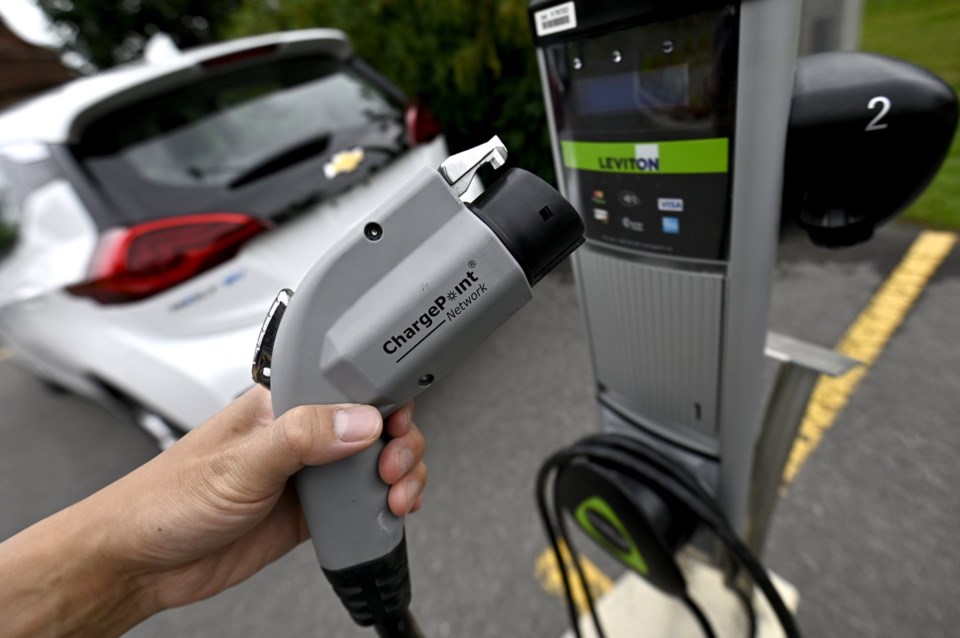A new survey has found that the majority of car buyers don't think the Canadian government can achieve its target of 100 per cent zero-emission vehicle sales by 2035, as interest in electric vehicle purchases remains largely unchanged from last year.
The survey from consumer insights firm J.D. Power found that 75 per cent of new-vehicle shoppers are not confident the 2035 target will be reached.
The survey also found that 28 per cent of respondents are “very likely” or “somewhat likely” to consider an EV for their next vehicle purchase, down from 29 per cent last year and 34 per cent in 2023.
J.D. Ney, director of automotive practice at J.D. Power Canada, said Canadians are still hesitant to embrace EVs for several reasons, with anxiety topping the list as they are worried about how far they can drive on a single charge. He said affordability and lack of charging infrastructure are other major factors.
“Based on the type of vehicle that most Canadians want to drive, they're expensive vehicles in this market,” he said.
The target that all new light-duty vehicles sold be zero-emissions by 2035 was initially set by former prime minister Justin Trudeau's government.
But Ney said based on the survey results, it is unlikely Canada could reach that goal in the next decade.
“EVs will continue to be a part of ... the mobility solution for Canadians and I think that they'll slowly grow in terms of market share," he said in a phone interview.
“It certainly may not be as quickly as, you know, a federal government mandate would like, but I think they're going to remain a part of the conversation for quite some time.”
Canadian interest in EVs is much lower than in the United States, where 59 per cent of those surveyed said they are either “very likely” or “somewhat likely” to purchase an electric vehicle.
The federal government paused an incentive program in January that offered Canadians rebates of up to $5,000 when buying or leasing electric vehicles, a move that Ney said was "certainly not going to help EV adoption."
J.D. Power's online survey of nearly 4,000 potential new vehicle buyers found that program pause had a negative effect on 42 per cent of those who were likely to consider getting an EV.
The polling industry’s professional body, the Canadian Research Insights Council, says online surveys cannot be assigned a margin of error because they do not randomly sample the population.
The survey also found that Canadian car buyers' most-considered EV brands have changed.
Tesla, owned by tech billionaire Elon Musk, dropped from second to eighth place among most-considered EV brands in Canada, with Hyundai, Kia, Toyota, Ford and Chevrolet now occupying the top five spots.
This report by The Canadian Press was first published May 29, 2025.
Sharif Hassan, The Canadian Press



